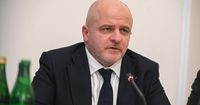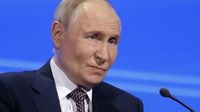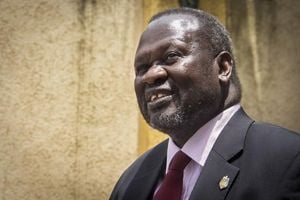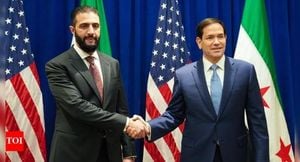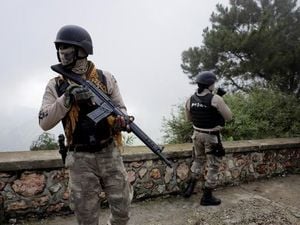In a stark warning that could heighten tensions in Eastern Europe, Paweł Kowal, the chairman of Poland's Foreign Affairs Committee and the government envoy for the reconstruction of Ukraine, believes that Poland is likely to become the next target of a Russian attack. During an interview with the newspaper Rzeczpospolita on March 21, 2025, Kowal expressed his firm conviction that Russian President Vladimir Putin is preparing for hostile actions against Poland.
"I am personally convinced that Putin will attack us. Not necessarily immediately, but as U.S.-Russian talks progress, his aggression will increasingly focus on Poland," Kowal stated. His concerns reflect a broader anxiety that escalations in diplomatic negotiations between the U.S. and Russia may inadvertently place Poland in a precarious position.
Kowal elaborated on the nature of the threats he perceives, emphasizing that these preparations would likely include disinformation campaigns aimed at undermining Poland’s status and credibility on the international stage. "Putin will prepare for further attacks: there will be disinformation campaigns against Poland, major diplomatic efforts to discredit Poland, convincing Western allies that it was Poland that caused this war," he cautioned.
According to Kowal, the issues at hand extend beyond mere military aggression. He described the internal logic of the Kremlin, suggesting that Putin views Poland's support for Ukraine as a betrayal. Kowal remarked, "In Putin's head, it works like this: we took Kyiv from him. He imagined he would be in Kyiv, and suddenly some Central European country, which in his mind is a Slavic country, betrayed him, helping Ukrainians to prevent him from entering Kyiv." This sentiment potentially illustrates the underlying motivations behind Russia's increasingly aggressive posture toward Poland.
Despite Kowal's alarm, he also recognized the limits of Poland's self-defense capabilities. He warned that Poland could invest substantially—up to 7 or 8 percent of its GDP—into defense but still struggle to fend off potential ambitions from Russia without strong international partnerships. "Poland cannot defend itself against Russia, even if it allocates 7 or 8 percent of its GDP to defense," Kowal remarked, underscoring the necessity of external alliances to bolster national security.
Kowal's insights are underscored by recent investigations, particularly those conducted by Lithuanian prosecutors, which revealed confirmed instances of Russian sabotage within Polish borders. These investigations have indicated that arson attacks in Poland were instigated by the Russian Federation, serving as a tangible example of the aggressive tactics employed by Russia.
The implications of Kowal's statements resonate beyond Poland's borders, raising concerns for international allies about the potential consequences of Russian aggression in Eastern Europe. His insistence on maintaining strong ties with Western partners highlights a strategic approach to countering disinformation and Russian diplomatic maneuvers aimed at isolating Poland.
As geopolitical dynamics continue to shift, Kowal advocates for an unwavering commitment to European unity and collaboration. "We cannot be isolated. It's crucial to connect every issue with European politics, keeping our partners engaged to ensure we're not alone in this fight," he said, calling for a concerted effort to forge robust alliances that can withstand the pressures brought by the Russian regime.
Moreover, Kowal's warning resonates amidst a growing narrative in which Russia seeks to frame Poland as a problematic element within the Western alliance. He articulated concerns regarding the ongoing efforts by Russian diplomats to undermine Poland's sovereignty, exemplified by attempts to disallow Poland from inviting foreign military presence on its territory.
In conclusion, the warnings articulated by Paweł Kowal reflect a significant concern for Poland’s security landscape, directly linking it to broader geopolitical engagements. As Poland navigates this precarious terrain, the importance of international alliances, a proactive stance against misinformation, and robust defense strategies becomes imperative. Kowal's insights serve as a clarion call for both Polish citizens and their allies to remain vigilant and united against the evolving threats posed by Russia.
